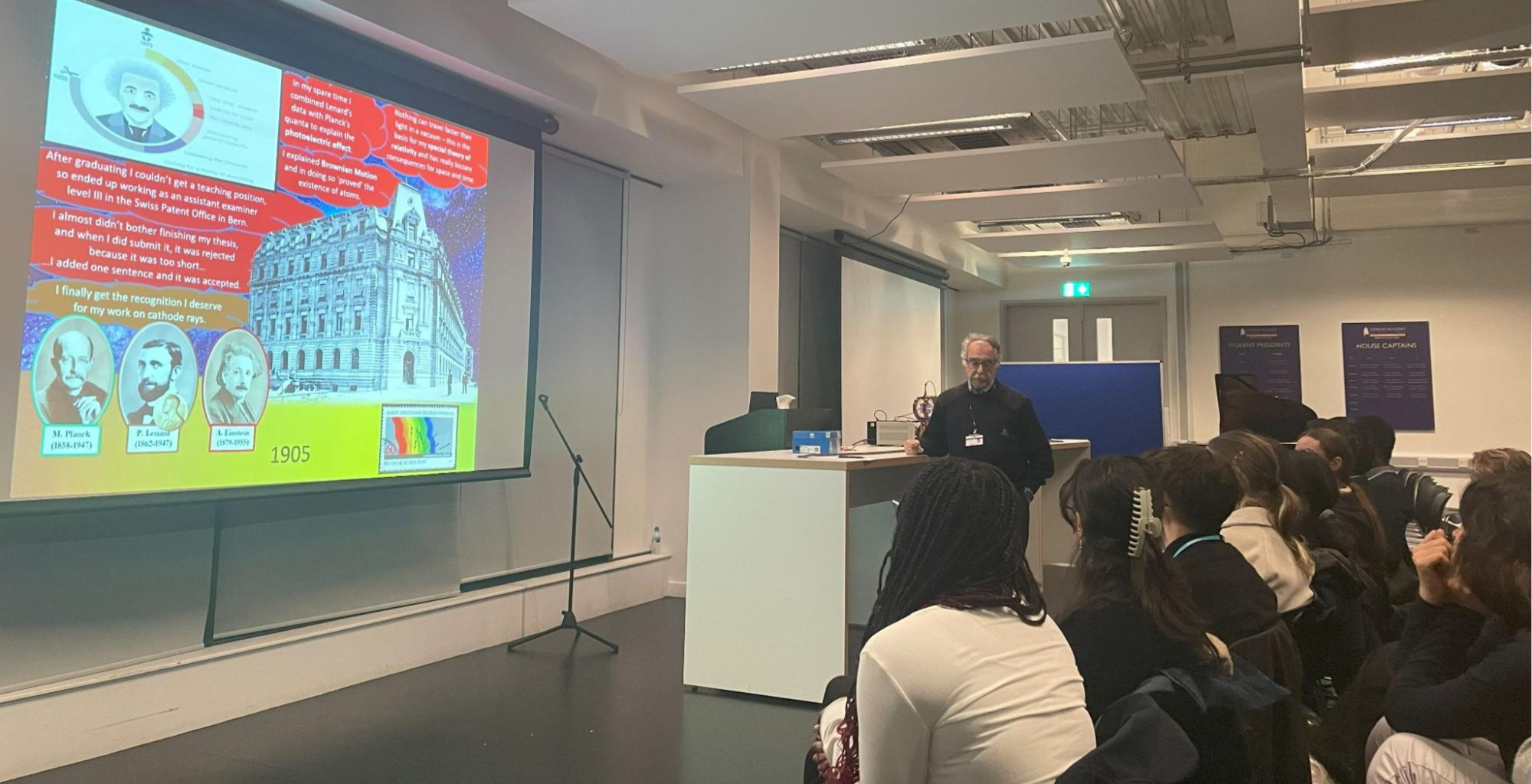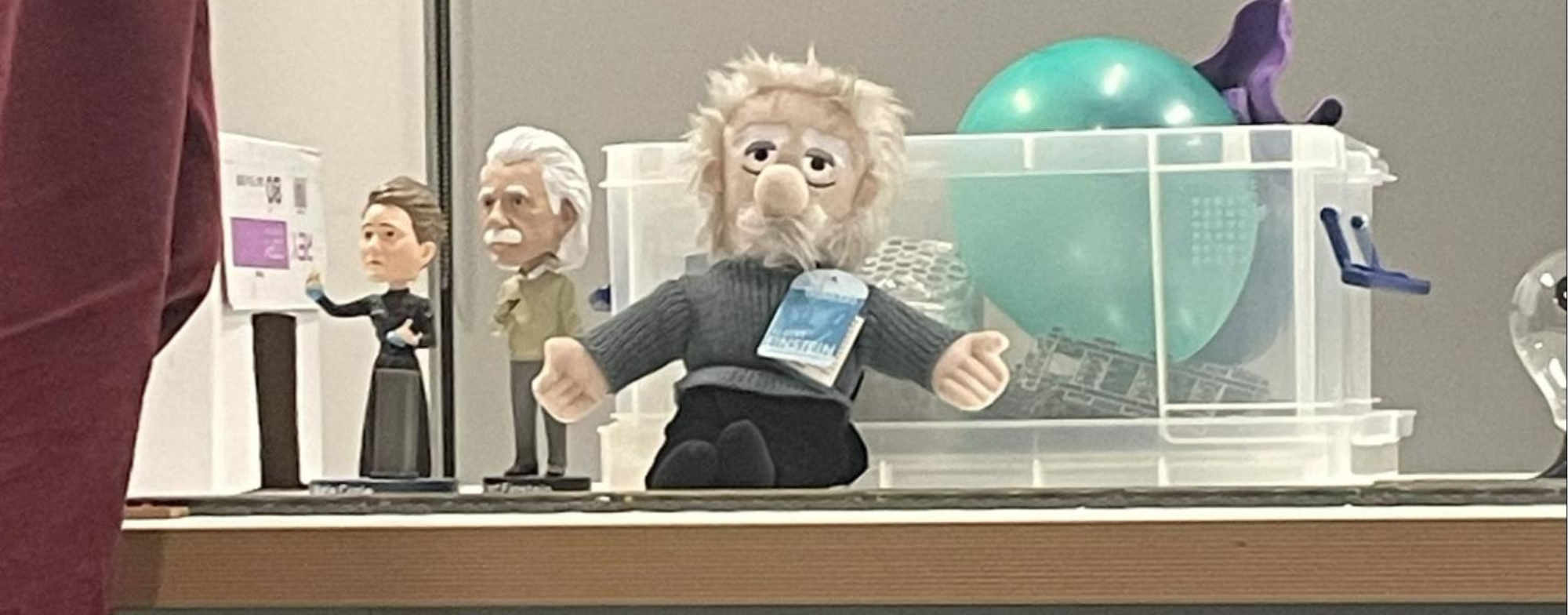Year 10/Year 11 History of Science Lecture Series

If any of this appeals to you, then why not join me, Dr. Palfreyman, on a 2,500-year journey starting in Ancient Greece and possibly culminating in a trip to the European Space Centre in Belgium, for the final lecture Part VI: Cosmology & The Space Race!

Sign Up
Non-LAET students can register via Eventbrite via this link.
Details
In brief: A series of 90-minute lectures (inspired by the Royal Institution Christmas lectures) taking a somewhat chronological journey through the major events and figures who have helped shape our current understanding of the universe.
Lecture Dates: Weekly (x5) starting Tuesday 5th November 2024, 4:15 - 6:00 pm
Time: Refreshments & quizzes will be available from 4:15 pm, lectures begin promptly at 4:30 pm to finish by 6:00 pm
Celebration Event: Thursday 7th or 14th December (TBD) - A chance to show off your own research with a conference-style poster session with nibbles and history of science-themed prizes on offer. Certificates of participation will also be awarded.
The Lectures
Part I: Greece to Galileo
We begin in Ancient Greece when mysteriously behaving objects were believed to have a soul and everything was made of combinations of earth, air, fire and water. The lectures take us through the rise and fall of ancient Empires and the ebb and flow of knowledge that would see the Western world enter the dark ages, while Baghdad became the centre of enlightenment. The contributions of Arab philosophers were vital to developing the scientific method and challenging long-accepted beliefs about the nature of light and the solar system.
Part II: Newton’s World
We return to Europe, finally emerging from the dark ages with Galileo coming into conflict with the Church when he challenges the heliocentric model of the universe and uses the scientific method to overturn Aristotle’s 2000-year misconception about falling objects. Meanwhile, the observation of a new star in the night sky that outshines every other cannot be explained by our models of a permanent and ever-lasting universe. Later Newton will take up the mantle, falling out with almost everyone he encounters, but will leave a large legacy on Physics along the way.
Part III: The Nature of Light
We dive deeper into the nature of light - what exactly is it? Does it have a speed or travel instantaneously? How can we explain reflection and refraction? Newton thought he’d cracked it with his corpuscular theory, but experiments were showing odd behaviour that were better explained if it were a wave. Huygens, Young and Fresnel all made telling contributions, but it wouldn’t be until the speed of light could be accurately measured that we would be able to prove if Newton’s theory was incorrect.
Part IV: The Electrical War
We start in 1801 with the invention of the voltaic pile, which allowed scientists to investigate the new phenomenon of electricity. The strange link with magnetism is demonstrated by Faraday and will revolutionise the shape of our lives to come. However, it will take the genius of Maxwell to explain this link and uncover the nature of light. By 1888 Tesla and Edison were ready to battle over the contract to electrify America, a dispute that would electrocute an elephant and see the invention of the electric chair would eventually be won by the right man - although the loser would end up rich and famous.
Part V: The Quantum Realm
This brings us to the start of the 20th Century - a time when physicists thought they had essentially discovered everything there was to know. Then Rutherford noticed that atoms can change from one element to another. Was alchemy back on the table? Hertz noticed something strange when ultraviolet light shone on his radio-wave experiment and Planck did some mathematical fudging to make his theory on blackbody radiation match experimental results. Enter Einstein, unable to obtain a university position, working as a patent clerk in 1904. He would eventually publish 4 papers, each of which rocked the foundations of accepted science.
Feedback from students
"Some of the most amazing practical demos you will ever see. GCSE Physics teachers aren't even qualified to do these practicals. You also get invited to an amazing trip to the European Space Centre in Belgium."
Y11 Student, 2022/23
“The history of science lectures were highly insightful as it explored concepts which I was unfamiliar with, in a way which made them seem interesting. I was also fascinated by how ideas which I knew about were shaped throughout history.”
Y11 student, 2022/23
“The History of Science lectures gave me more context on the scientific knowledge we now take as facts. I loved learning about where these ideas came from and how they developed over time.”
Y12 student, 2023/24

"These lectures deepened my understanding of the universe we live in. I highly recommend them."
Y12 student 2023/24
"The History of Science series was a great opportunity to learn about context parallel to the curriculum!"
Y12 Student 2023/24
"By going to these lectures I was able to find out about interesting things otherwise not taught by the A-level curriculum, which was exciting and had left me more passionate about physics than before! I thoroughly enjoyed every moment."
Y12 Student 2023/24



